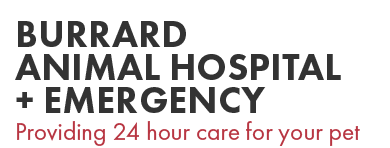Library
-
Diphenoxylate + atropine (brand name Lomotil) is an opioid combination medication used to treat diarrhea or coughing in dogs and diarrhea in cats. Its use in cats is not generally recommended. Diphenoxylate + atropine is given by mouth in the form of a tablet or liquid. This article discusses administration, potential side effects, risks, and monitoring.
-
Docusate (Docusate Sodium Bloat Preparation, DSS, Dioctynate®, Pet-Enema®, Enema SA®, Docu-Soft®, Anti Gaz, Bloat Eze, Bloat Go, Bloat Release, Bloat Treatment, Bloat-Lax) is a laxative medication used to soften dry or hard stools and assist with constipation and bloating in animals. It is prescribed for use in dogs, cats, horses, cattle, goats, sheep, and rabbits, but is not recommended for reptiles due to potential fatalities.
-
Dorzolamide (brand names: Trusopt®, Cosopt®) is an antiglaucoma medication used off label in cats, dogs, and horses to treat increased eye pressure (ocular hypertension). Dorzolamide is given in the form of a liquid drop applied directly to the eye.
-
Doxepin is given by mouth and is used off label to treat psychogenic dermatoses, especially those with an anxiety component. Examples of these conditions include tail biting, anal licking, excessive grooming, psychogenic alopecia, and feather plucking.
-
Doxycycline is an antibiotic given by mouth in the form of a tablet, capsule, or liquid, used off label to treat certain infections. Common side effects include stomach upset, sun sensitivity, and increases in liver enzymes. Serious side effects include liver failure, seizures, and trouble swallowing. Do not use in pregnant pets and use cautiously in pets with liver disease or in young pets. If a negative reaction occurs, please call your veterinary office.
-
Ear cleansing/drying products are used over-the-counter to treat and prevent ear infections in many species of pets. They come as a liquid solution that is used topically within the ear canal and are typically used in the ears after debris and wax have been removed using a cerumenolytic cleanser.
-
Echinacea is given by mouth and is used over the counter and off label to improve immune system function and reduce inflammation. Give as directed by your veterinarian. Side effects are uncommon but may include vomiting and diarrhea. Do not use in pets that are allergic to it. If a negative reaction occurs, please call your veterinary office.
-
Eggshell membrane (ESM) is a supplement used to improve joint function, reduce pain, and support flexibility and mobility in dogs. It contains naturally occurring elements like collagen, glucosamine, and chondroitin sulfate, which are beneficial for joint health.
-
Enalapril is used on and off label and is given by mouth or injection to treat heart failure, high blood pressure, chronic kidney disease, or proteinuria. Common side effects include loss of appetite, vomiting, diarrhea, and tiredness. Do not use in pets that are allergic to it, have an acute kidney injury, or have certain heart conditions.
-
EndoBlend™ is a blend of phytocannabinoids such as cannabidiol (CBD) and beta-caryophellene, designed to support overall health in dogs. It may benefit dogs with chronic pain, seizures, anxiety, and cancer. Consult with a veterinarian for proper usage and monitoring.


